Youth Coaching: Kids Haven’t Changed; Adults Have
Coach DevelopmentABOUT THE AUTHOR
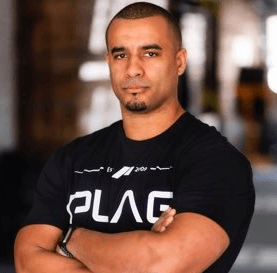
ANGELO JAMES
Angelo currently works for PLAE as the Director of Athlete Programming. Previously, he served as the director of human performance at Madison Academy, in Madison, Alabama, James developed programs for the 2017 state champion girls’ basketball team and designed the first-ever official strength & conditioning programs for the athletic department. Previously, he worked as a strength & conditioning intern with the Carolina Panthers NFL team in Charlotte, NC, and served as the assistant strength & conditioning coach for football at University of South Carolina in Columbia, Mississippi State University in Starkville and University of Tennessee in Knoxville. James also was the director of strength & conditioning at Bryant University in Providence, Rhode Island, where he ran programs for all 17 men’s and women’s NCAA Division I sports. Certified as a Strength & Conditioning Coach (CSCS) by the National Strength and Conditioning Association (NSCA), James also is the director of education for the National High School Strength and Conditioning Association. He earned a bachelor of science in business administration and health, human and sport performance from Wayne State College, in Wayne, Nebraska, where he played NCAA Division II football.
Charlie Applestein, author of There Is No Such Thing as a Bad Kid, says “Life isn’t what you see, it is what you perceive.” If you perceive kids as entitled, lazy, disrespectful, and unappreciative, that is all you will ever see.
In 2016, I left the world of collegiate strength and conditioning and decided to take my talents to the youth level. I thought I had seen it and done it all, but I wasn’t truly challenged as a coach, teacher, mentor, Christian, or individual until I walked into a room filled with 150 seventh and eighth grade boys and girls without a plan or equipment.
At first, I chose to perceive the kids precisely how society does. But once I began to perceive that these kids were capable, confident, resilient, and disciplined, that is what I started to see. It wasn’t always perfect, but the kids began to rise and fall based upon the expectations I set for them.
Once my perception changed, the kids changed…and so did my outlook as their coach.
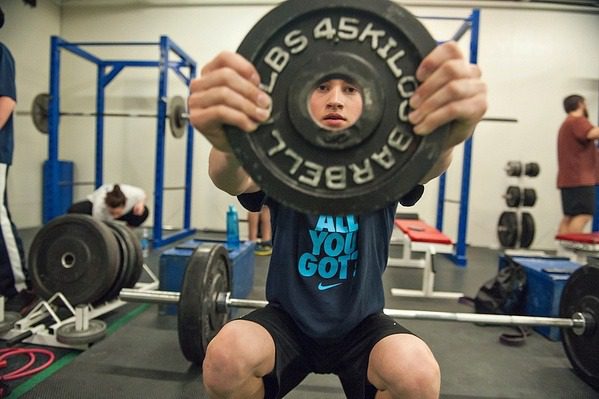
There were a lot of changes I needed to make to adapt to this age group, but the biggest thing was how I talked, projected, and communicated. The primary difference between the collegiate world and the youth world is that what you say goes home to Mommy and Daddy.
Gone were the days of getting chewed out by a random sport coach, and here were the days of parents chewing you out because you told their precious child that their effort wasn’t good enough. What was even more shocking was when the powers-that-be sided with the parent and wanted to placate the demands of the upset adult.
I came to realize that kids have not changed…adults have.
// There Are No Safe Places To Fail
Jessica Lahey, author of The Gift of Failure, speaks on the issue we are seeing across the country. “Today’s overprotective, failure-avoidant parenting style has undermined the competence, independence, and academic potential of an entire generation.”
- We don’t allow kids to fail in class because tests scores dictate funding to schools.
- We don’t want kids not to make the team or to lose, so we let everyone play and don’t keep score.
- Anytime a kid makes a mistake, we as adults step in and create a solution.
We are in a constant cycle of lowering standards so no one fails. So, where is the safe place these kids can learn how to fail?
When kids are taught that failing should be avoided at all costs, you start to see kids take the path of least resistance. Kids are learning it is better to quit than it is to try and be unsuccessful. From experience, my young students would rather not try a new task simply because they didn’t want to “screw it up.” Screwing things up is the point of trying new things – that’s how we learn to do them right.
Failure is a part of the learning process, and, honestly, it is one of life’s greatest teachers. If kids aren’t allowed to fail at any point or at any time, how do they learn to handle the adversity when they really do fail for the first time?
// We Are In the Age of Praising Ability, Not Effort
Adults often give labels to children very early in life and praise their abilities. We praise children for being smart, athletic, and talented. It turns out this can be one of the most damaging things we can do to children. Instead we should praise them on being capable of being smart, athletic, and talented.
Carol Dweck, best-selling author and professor of psychology at Stanford University, has studied the effects of praise on children for over a decade. One study involved over 400 fifth grade students. In the study, they gave a very simple I.Q. test, and at its conclusion, praised students in one of two ways. One group was praised for their intelligence, and the other group was praised for their effort. Then, they gave students an option for their next test – a harder or easier test, the results of which group chose what test is fascinating.
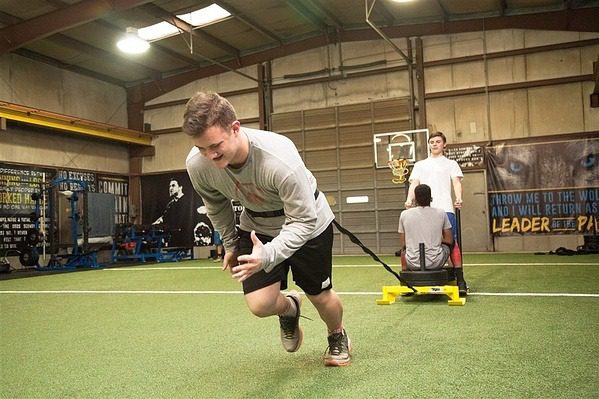
In the group that was praised for their intelligence, 67% chose the easier test. A whopping 92% of the group praised for effort chose the harder test.
Carol Dweck explains the results:
When children or adults think, “Oh, you think I am brilliant and talented. That’s why you value you me,” they also think “I better not do anything to disprove that evaluation.” As a result, they adopt a fixed mindset and play it safe in the future and limit the growth of their talent. Whereas focusing on the strategies they use, the way they are stretching themselves, and the intense practice they are doing are the kinds of things that say to a child or older athlete: It’s about the process of growth.
As a result, they don’t feel as if when they make a mistake you won’t think they’re talented. They think: oh if I don’t take on hard things and stick to things, I’m not going to grow.
The reality is that we as adults are teaching kids to adopt a fixed mindset by praising their abilities instead of praising their capabilities.
// It’s a Mindset: Have To vs. Get To
When I was in sales, I had the opportunity to listen to Donnie Maib, Assistant Athletic Director of Human Performance at the University of Texas. He introduced me to the work of John C. Maxwell, his book Today Matters, and the concept that there are two types of people: people who “HAVE TO” and people that “GET TO.” These two types of people think very differently.
- For people in the first group, life happens to them, and they are a victim obligated to get through life. They HAVE TO wake up, they HAVE TO go to work or school, and they HAVE TO go to practice.
- The second group gets to experience life as an opportunity. They GET TO wake up, they GET TO go to school or work, and they GET TO go to practice.
Two simple words, yet two drastic differences in mindsets. “Have to” people have a fixed mindset, and “get to” people have a growth mindset.
As adults we can at times display a fixed mindset about the kids we are working with. Smart kids are smart and athletic kids are athletic, and that is that. We teach these kids that if they want to get a scholarship, they “have to” get this grade or make this team. We are engraining the “have to” mindset into kids.
I did not want my students or their parents to look at the training as an obligation or something they “have to” do. I wanted them to understand the training was an opportunity and something they “get to” do.
// It’s Science
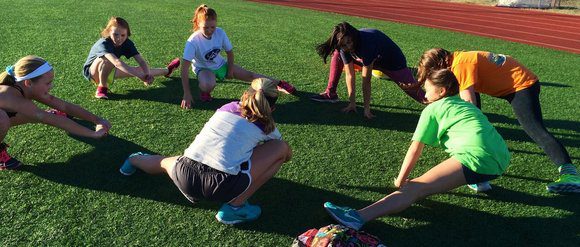
It is all about movement. Parenting styles come in waves, and the popular movement in parenting today is to eliminate all obstacles in the path of their precious children.
Isaac Newton laid all of this out through the laws of motion. The law of inertia states objects at rest stays at rest, objects in motion stay in motion, unless acted upon by an outside force. Parents are eliminating those outside “forces” that will cause their child’s development to be redirected.
If there aren’t any forces in the path of children, they will stay on the course in which they are heading…being entitled, lazy, disrespectful, and unappreciative.
Newton’s third law of motion states that for every action there is an equal and opposite reaction. In my experience this holds true in coaching children.
The amount of energy you put into these kids will be matched by an equal amount of energy back upon you. If that energy is positive, then what you receive will equally be as positive. If that energy is negative…well, get ready for a parent email.
// It’s a Choice
No one is shielding kids from failure because they want their child to develop a fixed mindset or sense of entitlement. Parents are parenting, teachers are teaching, and coaches are coaching out of love for their kids/students/athletes. The styles may change over the years, but the choices we make on how to do so come from wanting the best for the next generation.
In his book The Rhythm of Life, Matthew Kelley wrote, “Everything is a choice. This is life’s greatest truth and its hardest lesson. It is the greatest truth because it reminds us of our power. Not power over others, but often the power to be ourselves and to live the life we have imaged.”
He later continued, “It is a hard lesson, because it causes us to realize that we have chosen the life we are living right now. It is perhaps frightening because we may not like what we find when we look at our lives today. But it is also liberating because we can now begin to choose what we will find when we look at our life in the tomorrows that lie unlived before us.”
These trends of entitlement, laziness, insecurity, and ungratefulness do not reside in our children, but in society as a whole. While this may be a hard truth to swallow, it is a truth we must accept if it is going to change. While the problem may be in front of us, sometimes the solution can be found in the mirror.
// It’s Not About the Adults or the Kids; It’s About You
It is easy to point fingers and blame someone else for how things are, but ultimately you are the one who decides how it affects you. To quote the Notorious B.I.G., “We can’t change the world unless we change ourselves.”
Ultimately, we have to model the behavior we want to see in the next generation.
- If we want kids not to be entitled, we must show them the value of what it means to be humble and appreciative.
- If we want kids to have a growth mindset, we must praise them for their efforts and demonstrate to them that they are capable of growth.
- If you want children to be resilient, you must demonstrate to them how to gracefully handle adversity yourself.
- If you want kids to buy in, you need to buy in and practice what you preach.
It’s not complex, but it isn’t easy either because it requires us to be present at all times.
Most importantly, it is invaluable to demonstrate to this next generation that it is okay to fail. We as adults aren’t perfect, we all make mistakes, and it is okay when you do. Adults have changed because we fear failure and we don’t want our kids to experience it. However, if this trend is ever going to change we must be strong enough to share our failures with the children we are tasked to work with.
We all have room to grow, so let’s help each other do it!
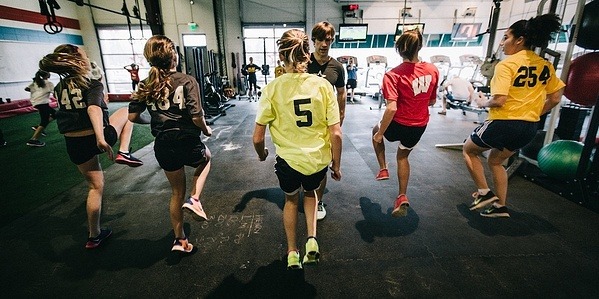
Are you a better coach after reading this?
More coaches and athletes than ever are reading the TrainHeroic blog, and it’s our mission to support them with useful training & coaching content. If you found this article useful, please take a moment to share it on social media, engage with the author, and link to this article on your own blog or any forums you post on.
Be Your Best,
TrainHeroic Content Team
HEROIC SOCIAL
HEROIC SOCIAL
TRAINING LAB
Access the latest articles, reviews, and case studies from the top strength and conditioning minds in the TH Training Lab

